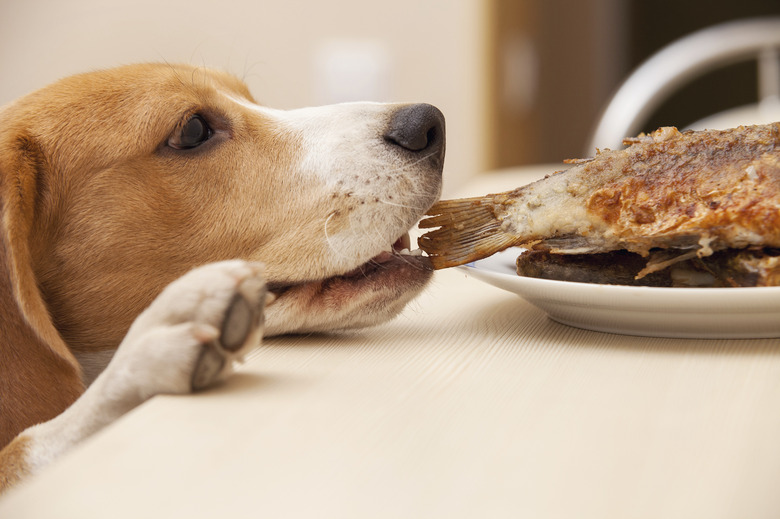Treating Dog Pancreatitis
Ahhhh the pancreas. You know it's important, but you may not know why. The pancreas produces enzymes that are released into your dog's intestines to help him digest food. It also produces hormones to regulate his digestion and blood sugar levels. If his pancreas becomes inflamed, he has pancreatitis, which can range from mild to severe and which can be chronic or acute. It is a serious condition, requiring veterinary treatment and care.
Symptoms of Pancreatitis
Symptoms of Pancreatitis
Pancreatitis can be acute, occurring suddenly, or chronic, showing as repeated attacks of acute pancreatitis as the organ degrades over time. Symptoms of acute pancreatitis come without warning and include diarrhea, vomiting, fever, dehydration, abdominal pain, depression, loss of appetite, weakness and lethargy. As well, a dog's abdomen will likely be tender, often prompting him to avoid lying on his side. As pancreatitis progresses to a chronic stage, the color of the dog's stool often changes to a light yellowish color, with a greasy appearance and foul odor. A dog with chronic pancreatitis usually loses weight gradually as he becomes starved for nutrients. A dog who exhibits any of the symptoms of pancreatitis for more than a day should see the vet.
Acute Severe Pancreatitis
Acute Severe Pancreatitis
A sudden onset of pancreatitis is a veterinary emergency; some dogs recover quickly, while others never recover. If your dog has a severe attack of pancreatitis, the vet will work to keep him alive. Intravenous fluids help keep his blood pressure and kidney function acceptable while the vet runs tests to confirm pancreatitis. Severe pancreatitis causes a dog to go into shock, so he'll be kept warm and receive steroids, as well as oxygen to help him breathe; antibiotics are sometimes used if infection is a concern. The first 48 hours after an attack is critical to a dog's survival, and intensive veterinary intervention is the only chance a dog has of surviving a severe attack of pancreatitis.
The Path to Recovery
The Path to Recovery
After a severe bout of pancreatitis, a dog may not eat for several days because his pancreas needs time for rest and healing. As the dog recovers from his attack, his activity level should be restricted to allow time for recovery. When the vet determines it's time to eat, your dog will probably eat a food that's easily digestible — bland, high in carbohydrates and low in fat.
Managing and Living With Pancreatitis
Managing and Living With Pancreatitis
Your dog's pancreatitis attack may be a one-time event or it may be one in a string of episodes. Trauma, such as that caused by getting hit by a car, is a known potential cause of pancreatitis, however there's a lot of speculation about its other causes. Lipemia, or high levels of fat in the blood; hypercalcemia, high amounts of calcium in the blood; obesity from a high-fat, low-carbohydrate diet; and some drugs are among the condition's suspected triggers. As a result, a dog in recovery should eat an easily digestible diet that's low in fat. Feeding small meals throughout the day won't tax his pancreas, and maintaining a healthy body weight will minimize his risk. If your pup has chronic pancreatitis, the vet may prescribe supplements, such as B-complex vitamins.
Always check with your veterinarian before changing your pet's diet, medication, or physical activity routines. This information is not a substitute for a vet's opinion.
